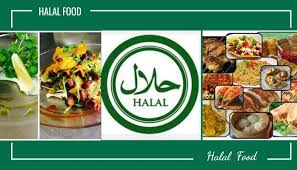Halal, an Arabic term meaning “permissible” or “lawful,” is a concept Halal Guide deeply rooted in Islamic law and culture. Its implications extend beyond dietary restrictions, influencing various aspects of life for Muslims around the world. Here, we delve into the multifaceted nature of Halal, exploring its significance, application, and impact in contemporary society.
Origins and Foundations
The concept of Halal originates from the Quran, the holy book of Islam, and the Hadith, the sayings and actions of the Prophet Muhammad. These texts provide a framework for what is considered permissible in various aspects of life, including food, finance, and personal conduct. The opposite of Halal is “Haram,” which means “forbidden.” This dichotomy shapes many everyday decisions for practicing Muslims.
Halal and Dietary Practices
One of the most visible applications of Halal is in dietary laws. For food to be deemed Halal, it must meet specific criteria:
- Source: The food must come from permissible sources. For instance, pork and its by-products are Haram, while beef, chicken, and fish are generally Halal, provided they meet other conditions.
- Slaughtering Process: The animal must be slaughtered in the name of Allah, following a precise method known as Zabiha. This process is designed to ensure that the animal’s death is swift and humane.
- Cross-Contamination: Halal food must be prepared and served using utensils and equipment that have not been contaminated with Haram substances.
The Halal food industry has grown significantly, catering not only to Muslims but also to those who seek ethical and clean food options. This expansion reflects a broader interest in transparency and quality in food production.
Financial Ethics: Halal Finance
Halal extends beyond food and into financial practices. Islamic finance operates on principles that promote fairness and avoid exploitation:
- Riba (Interest): Charging or paying interest is considered Haram. Instead, Islamic finance promotes profit-sharing and risk-sharing models, such as Mudarabah (profit-sharing) and Musharakah (joint venture).
- Gharar (Uncertainty): Transactions that involve excessive uncertainty or ambiguity are prohibited. Contracts and agreements must be clear and well-defined.
- Ethical Investments: Investments should be in industries and businesses that align with Islamic ethics, avoiding sectors like gambling, alcohol, and tobacco.
Islamic finance principles have influenced global financial systems, leading to the development of a robust Halal financial industry that offers Sharia-compliant banking, insurance, and investment products.
Halal Lifestyle: More Than Just Food
The Halal concept permeates various aspects of lifestyle:
- Cosmetics and Pharmaceuticals: Halal certification applies to personal care products, ensuring they do not contain Haram ingredients like alcohol or animal-derived substances.
- Fashion: Halal fashion respects modesty guidelines and avoids materials that conflict with Islamic principles, such as those derived from non-Halal animals.
- Tourism: Halal tourism offers services and accommodations that cater to Islamic values, including prayer facilities and Halal dining options.
The Global Impact
The global Halal market has seen exponential growth, reflecting increasing awareness and demand. This trend is not confined to Muslim-majority countries; non-Muslims are also exploring Halal products and services due to their perceived quality and ethical standards.
Moreover, the rise of Halal certification agencies and international standards highlights a commitment to maintaining integrity and consistency in Halal practices. These agencies play a crucial role in ensuring that products and services meet the necessary criteria, fostering trust and reliability.
Challenges and Future Directions
Despite its growth, the Halal industry faces challenges such as standardization and certification consistency. Variations in interpretation and application of Halal principles can lead to discrepancies. Efforts are ongoing to harmonize standards and improve transparency.
Looking ahead, the Halal concept is likely to continue influencing global trends in food, finance, and lifestyle. Its emphasis on ethical practices and quality resonates with a broader audience, suggesting a future where Halal principles contribute to a more conscientious and inclusive world.
In summary, Halal is a rich and complex concept that transcends dietary restrictions. It shapes ethical practices across various sectors, reflecting a commitment to principles of fairness, transparency, and respect. As the Halal industry evolves, it holds the potential to inspire positive change and foster greater understanding across diverse communities.

